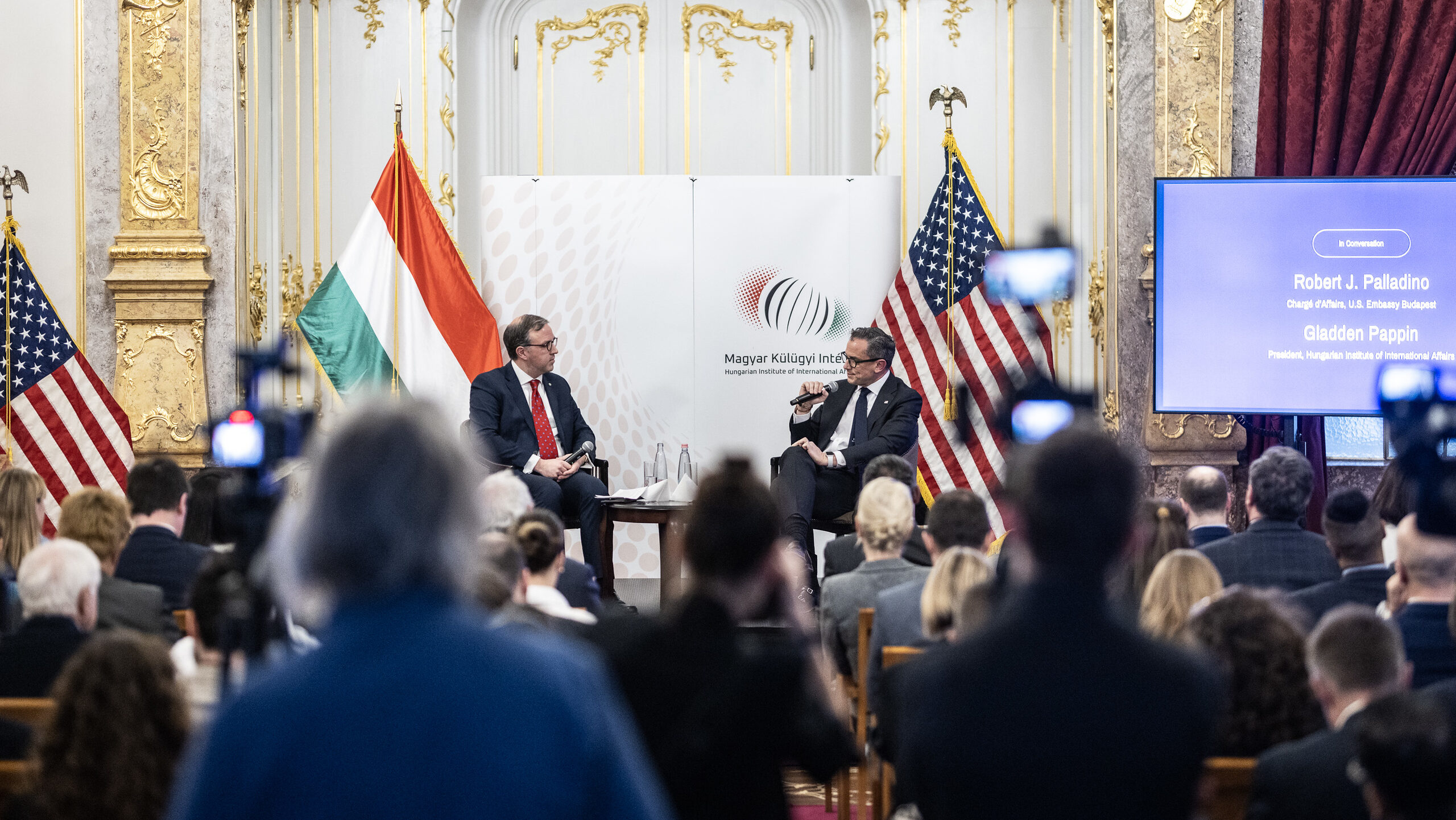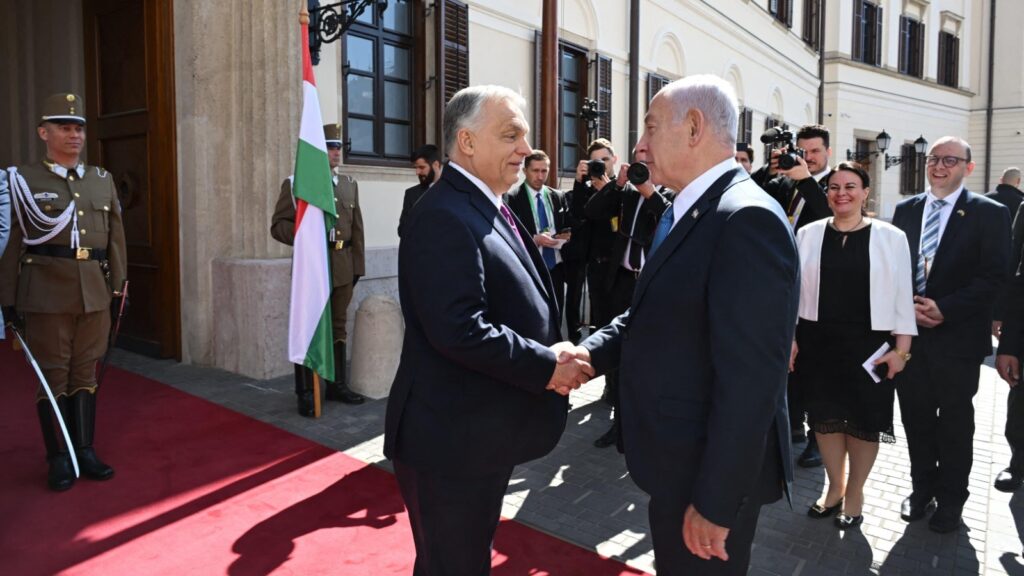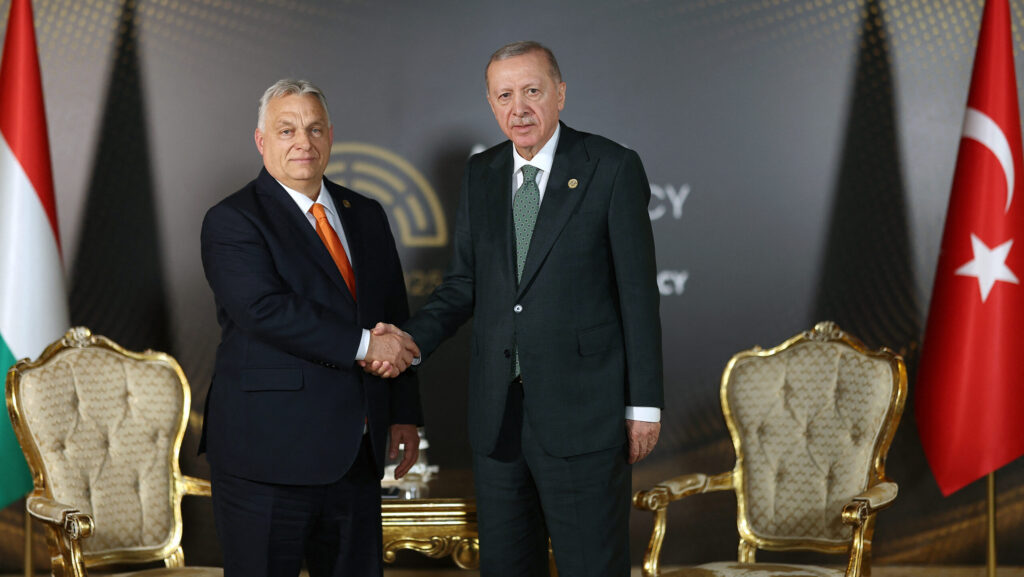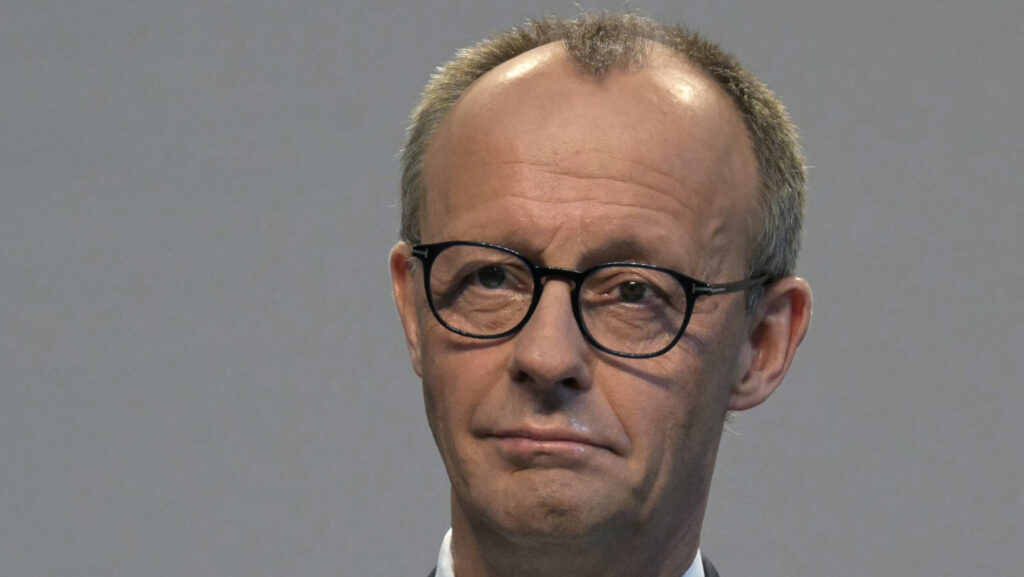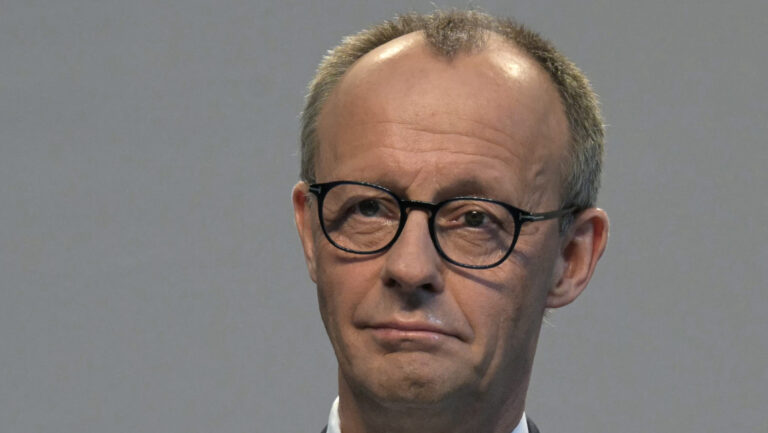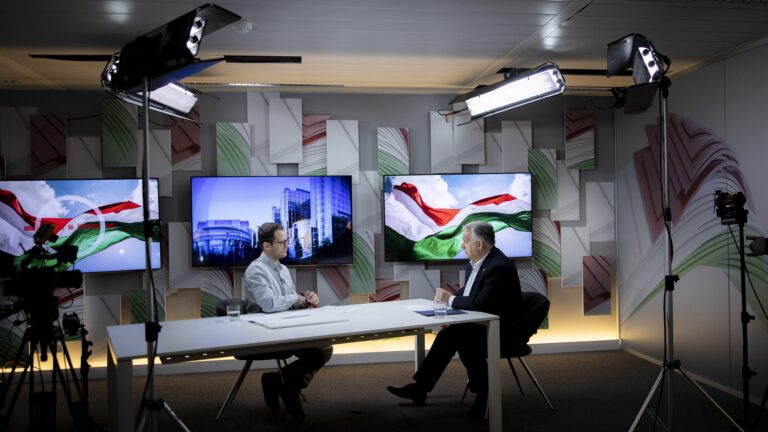In a room packed with diplomats, journalists, and reporters, President of the Hungarian Institute of International Affairs Gladden Pappin hosted Chargé d’Affaires ad interim at the US Embassy in Budapest Robert Palladino for a fireside chat at the 19th-century Károlyi–Csekonics Palace. The high turnout was no coincidence: it marked the first time the senior US diplomat had shared his impressions of Hungary and US–Hungarian relations since his mission began on 7 March.
Those in attendance were not disappointed. The conversation touched on nearly every major global issue, from peace talks in Ukraine to US President Donald Trump’s push for fairness in global trade—and the tariffs that followed—as well as the potentially bright prospects for future relations between Hungary and the United States.
No Ideological Activism
One of the key takeaways from the discussion was Palladino’s clear message: under President Trump, there will be no ideological activism in US diplomacy. His remarks were widely interpreted as a reference to his predecessor, former US Ambassador David Pressman. During his tenure under former President Joe Biden, US–Hungary relations reached an all-time low, with the ambassador often described by members of the Hungarian government as behaving like a ‘Hungarian opposition leader’.
‘We’re doing things differently now, and we’re already seeing a realignment between the United States and Hungary at the highest level,’ Palladino noted. He recalled that Trump and Hungarian Prime Minister Viktor Orbán enjoy a close relationship, which could serve as a key engine behind renewed engagement. ‘They speak frequently—December, March, and again just last week. I wouldn’t be surprised if they spoke again very soon,’ he said, adding that this means ‘the doors are open at the highest level,’ creating space for both sides to ‘turn the page’ and open a new chapter in bilateral relations. ‘Now we must translate these high-level relations into concrete results that matter to the American people—and to the Hungarian people,’ Palladino emphasized.
‘Trump and Orbán enjoy a close relationship, which could serve as a key engine behind renewed engagement’
The scope for cooperation between the US and Hungary is broad: energy, defence, commerce, and people-to-people exchange, to name just a few. Palladino particularly highlighted energy cooperation, noting that he had already visited the Paks Nuclear Power Plant. ‘Energy security is national security, and the United States is ready to support Hungary in that regard,’ he said, adding that the US possesses world-class small modular reactor (SMR) technology that could soon be deployed in Hungary. ‘Hungary has growing energy needs and a developing battery industry—there’s room for growth, and US companies are ready to help,’ he added.
Palladino also said there was significant room for growth in defence cooperation between the two countries, announcing that high-level dialogue would begin next week in Budapest.
The Big Picture: Ukraine, Munich and Tariffs
Staying on the topic of defence, the US diplomat reiterated the administration’s commitment to ending the war in Ukraine—a vision shared by Hungary. ‘Hungary has long advocated for peace—and President Trump shares that vision. We’re grateful for Hungary’s support for the president’s mission to secure a durable, lasting peace.’ Still, he admitted that negotiations had entered a very difficult phase, and maintaining transatlantic leverage through a unified EU–US position would be crucial—an area where Hungary plays an important role.
Palladino also stated that Europe must take on greater responsibility for its own security. However, he dismissed talk of a ‘divorce’ between Washington and Brussels—a phrase that made headlines following US Vice President JD Vance’s iconic speech at the Munich Security Conference in February. The US, he said, wants partnership, not dependency, and calls for a re-evaluation of how security cooperation is structured.
Turning to a less encouraging subject—at least from a Hungarian perspective—the US diplomat addressed Trump’s reciprocal tariffs announced last week. Palladino underlined that the United States wants fairness in global trade, as American companies face far more closed markets, tariffs, and non-tariff barriers abroad than foreign companies face in the US.
Golden Age Vibes
The tariffs will significantly impact Hungary’s economy, particularly given its close ties to Germany’s automotive industry. According to the Central Bank of Hungary, the new tariffs are expected to reduce projected GDP growth by 0.5 to 0.6 percentage points. Additionally, a report by the Office of the US Trade Representative outlined specific trade barriers, stating that ‘corruption in the public procurement system is a key concern in Hungary.’ While this accusation is widely cited by critics of the government, it is unusual to hear it from governments aligned with the national-conservative side of the political spectrum—let alone from a close ally such as the United States under President Trump. Hungarian Minister of Foreign Affairs and Trade Péter Szijjártó dismissed that part of the report as a remnant of the Biden administration’s doing.
‘The political environment is now creating real commercial opportunities for American firms in Hungary’
However, Palladino was notably more optimistic, as he noted that American companies have reported a significant ‘vibe shift’ since the US administration changed in January. ‘The mood is more optimistic. Companies are gaining access to ministries and regulators in ways they hadn’t before,’ he said, adding that the political environment is now creating real commercial opportunities for American firms in Hungary. ‘These businesses bring high-value jobs, excellent training, and they give back to the communities they serve,’ he noted.
Concluding the nearly hour-long conversation, Palladino reaffirmed that, thanks to the strong relationship between President Trump and Prime Minister Orbán, there is real space—on the ground, in government, in business, and among ordinary citizens—to build something meaningful. ‘I do believe we have the potential for a golden age in US–Hungarian relations. There’s hard work ahead—but I look forward to seeing the results.’
Related articles:

